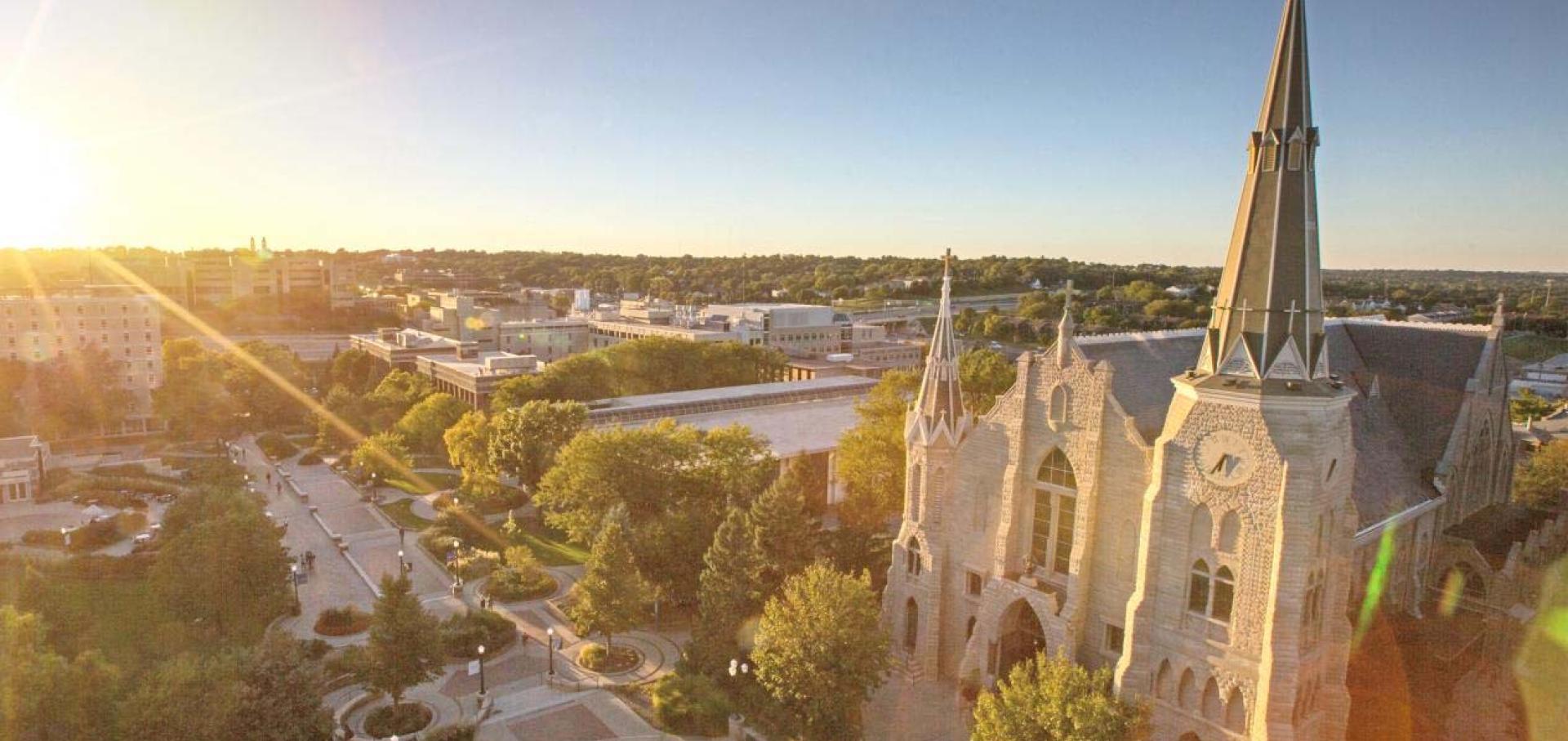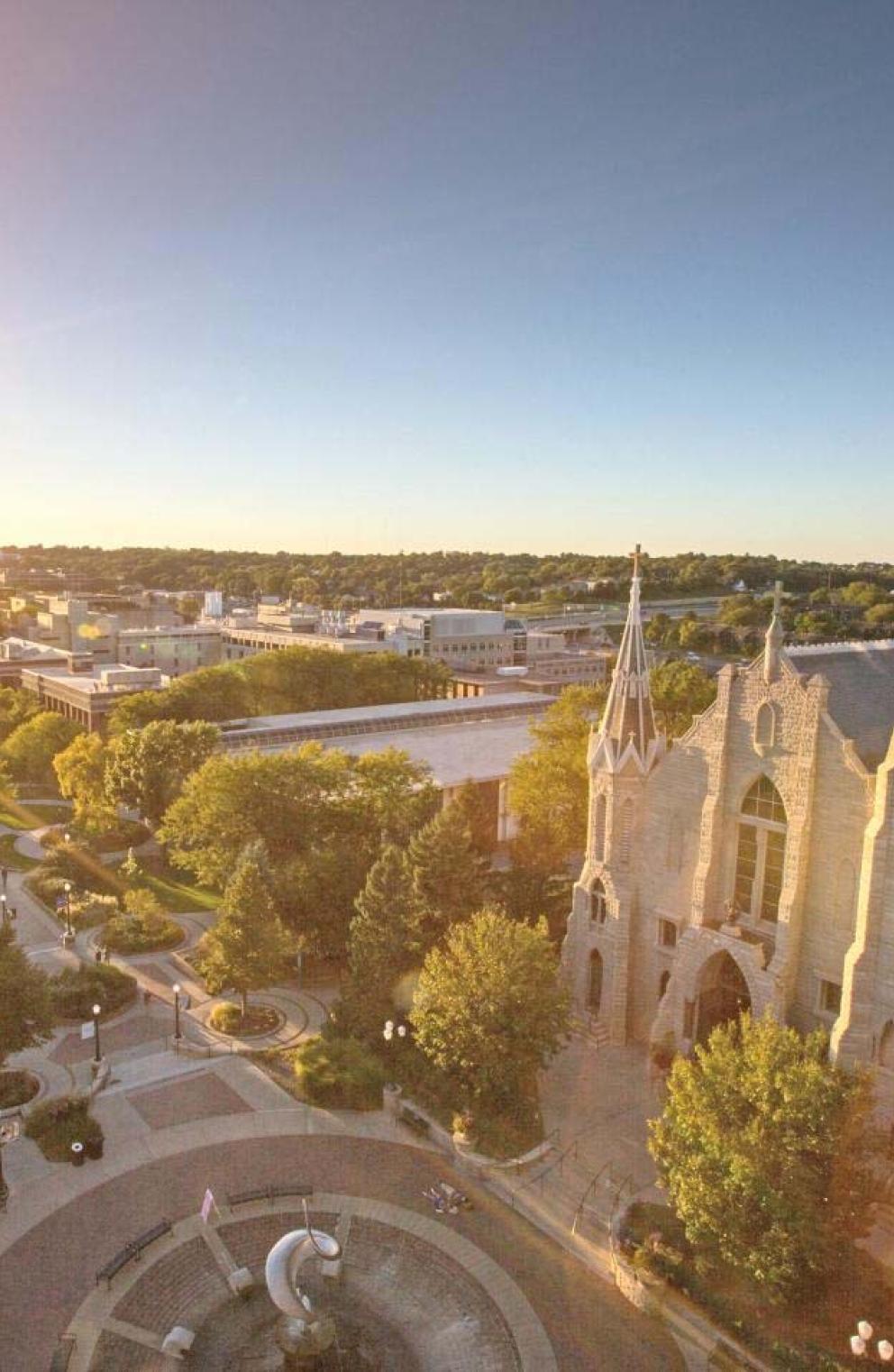
Biomedical Sciences (Doctorate)
Creighton University’s Doctorate in Biomedical Sciences will prepare you for a rewarding career as a scientist, educator, administrator or consultant. You’ll learn new ways to analyze problems, and develop the means to solve them, by completing an in-depth research project. Through your dissertation work in the School of Medicine, you’ll become an expert at communicating your findings to peers and in literature.
In keeping with the Jesuit tradition of educating the whole person, this top biomedical sciences PhD program develops students as well-rounded individuals. You’ll be inspired to think critically about pressing topics, engage in conversations about research ethics and spark your creative inquiry. Research at Creighton is mission-driven, making your work part of a larger effort to serve others and create a more just world.
Your research passions are our priority
The doctoral program in biomedical sciences is personalized to your interests and goals. You’ll have an individualized plan of study and opportunities for both theoretical and applied research in your field. Possible areas of study include:
- Cancer biology
- Neuroscience
- Auditory and vestibular research
- Biochemistry and chemical biology
- Cell and developmental biology
- Molecular biology and gene regulation
- Physiology
Your professors will work closely with you—guiding your studies and acting as teachers, advisors and mentors throughout your degree and career. Many of our faculty members collaborate and work with students long after they earn their degree.
Creighton's state-of-the-art facilities, such as the Biomedical Sciences department's core facilities and Integrated Biomedical Imaging Facility, provide hands-on experiences that will help you develop skills to differentiate you after graduation.
Join a growing field of biomedical research scientists
Biomedical science is a growing field, and research scientists are in high demand—job opportunities for biomedical scientists are expected to grow 13% over the next decade. A graduate education is strongly suggested for advancement in the field. 62% of biomedical scientists have a doctoral or professional degree.
Source: Economic Modeling Specialists International (EMSI) — January 2018



Program Details
Creighton’s PhD in Biomedical Sciences program prepares individuals for a rewarding career as a scientist, educator, administrator or consultant. Students work with advisors and an advisory committee to formulate an individualized plan of study based on interests and goals. This program can be completed in four to five years.
To earn this doctoral degree, you must complete 90 credit hours:
- Required Courses
- Fundamentals of Cell and Molecular Biology
- Responsible Conduct of Research (Ethics)
- Research Methods
- Research Writing
- Introduction to Biostatistics for the Biomedical Sciences
- Ongoing Courses
- Seminar (every semester)
- Journal Club (every semester)
- Directed Independent Research (3-6 credits per semester)
- Electives
- Degree Completion Course: Doctoral Dissertation
Doctoral candidates must present and defend a dissertation to complete the program
Faculty
Creighton’s Biomedical Sciences faculty are experts in a variety of fields, which allows them to personalize programs to individual students’ needs and interests. Their research focuses on cancer, cell and molecular biology, hearing, neuroscience and proteins. All faculty and staff encourage a collaborative, interdisciplinary approach between departments and research partners.
Dual Degree Options
Dual Degree Programs
Students can complete a dual degree program to earn two degrees at once, saving both time and money. The following dual degree options are available in biomedical sciences:
- Medicine (Doctor of Medicine) + Biomedical Sciences
Admission Requirements
To be considered for admission to the PhD in Biomedical Sciences program, applicants must:
- Complete an application
- Possess a bachelor’s degree in a related field with 3.0 GPA or higher
- Provide official transcripts from all educational institutions attended. Read more about sending transcripts
- Include a resume or curriculum vitae
- Submit a personal statement (see application for specific requirements)
- Submit three letters of recommendation from persons other than friends or family members
A personal interview may be requested in addition to the above requirements. The interview may be conducted in-person or virtually.
International students are welcomed into this program and F-1 visas will be supported upon admission.
International applicants must:
- Meet English language proficiency requirements
- Complete and submit a Certification of Available Finances Form through the Global Engagement Office if admitted
Tuition & Financial Aid
Tuition Remission
All students in Creighton’s Doctorate in Biomedical Sciences program receive tuition remission. Students are also offered yearly stipends for 3-4 years, depending on whether the student enters the program with a master’s or bachelor’s degree.
Have questions? Email or call a friendly financial specialist at 402.280.2731 for any additional questions you may have.
Dates and Deadlines
The table below details the enrollment deadline and starting date of courses for the current academic year. If you have any questions about dates, deadlines, or application materials, please contact an admissions advisor for personalized assistance.
ON-CAMPUS
START CLASSES IN | INTERNATIONAL APPLICANTS AND SCHOLARSHIP CONSIDERATION APPLY BY | GENERAL DEADLINE APPLY BY |
August | February 1 | July 1 |
January | August 1 | December 1 |




